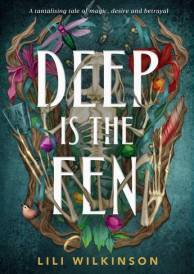Great Expectations

Great Expectations
You've just been advised that you have a new team member starting next week. You haven't met them, but the word around the business is that he's a real pain. You've spoken to a few people who tell you Chris is slow and tedious with his work, and picks up on all the little things in everyone's work. Great! Just what you need when you've got tight deadlines!
As soon as Chris arrives on your floor, you head over to meet him and ask him to come to your office. When he asks if he can put his things down and just get himself organised first, you're thinking -Here we go – he can't even get to my office for a meeting!'
You give him a serve about how you like things to move fast, that you've got tight deadlines and that he really needs to perform, but when he nods and says -Sure, no problem', you shake your head. You actually don't believe him.
The next day, when Chris asks if he could just have a few moments to check something over before it gets sent off to the client, you tell him to just get it out. He's mucking around, again, wasting time.
An hour later your top client rings you, wondering why on earth you've allowed something to be sent out incomplete. It was sent by Chris, today. Your client wants to meet you – they are not happy, Jan!
Now, we've all had some kind of experience like this in business. What's happening is that we behave in a way that is consistent with our expectations, not necessarily with reality.
Neuroscience has continued to study how the brain deals with expectancy, and we now know that expectations are formed in the brain's pre-frontal cortex. Not only do our expectations determine our behaviour at the time of a particular event, but brain studies have proven that we actually plan for events in accordance with what we are expecting. This has amazing outcomes, both in our ability to achieve great success, but also to bring about great failure.
In our role as leaders, if we are truly expecting to achieve our mission and goals for the year, then we will plan our day, our week, our month, our year, in order to achieve those. However, if we'd like to achieve them, but are really expecting that they are out of reach, then we will not put in the same amount of effort, we won't plan as well, we'll let deadlines slip, not communicate and engage the team as well – we behave in a way that is consistent with what we actually expect.
The thing is, others will behave in this same way towards you. If you have customers that have poor expectations of your organisation, your products and services, say they expect that the service will be sloppy and your staff unattentive, then they will have already decided how much they will buy from you, or how much they will engage with your organisation, and may be planning to find an alternative to you.
What's really unfair about this, is that those expectations may have nothing to do with you, and everything to do with something someone else told them about you!
Herein lies the dilemma of trust – we rely on people to meet our expectations and needs and to keep the promises they make to us. If we are expecting one thing, and they are promising something different, then we do not trust them as much as we could. We hold back, we disengage, or we give a little, but not too much.
Beginning to understand what your staff, your customers, your shareholders, your board, actually expect of you will certainly help you make sense of why they behave the way they do, but will also help you build a stronger, trusting relationship with them. You need to:
1.Recognise that they do have expectations of you, right now, and that some of those will be negative, and some will be positive
2.Know that their expectations of you are driving their behaviour
3.Understand that it does not matter what you promise or communicate to them, they are still persisting down a path, until you change their expectation
4.Realise that if you want something to change, you need to change their expectation of you
5.Apply your efforts to proving to them that they can now expect something different
Meeting or managing expectations is one of the key strategies to building trust in your business. Just remember, it literally is the thought that counts!
-Vanessa Hall
Vanessa will be speaking at the inaugural Brain Art Exhibition and Unconference from March 3rd – 12th 2011 at Global Gallery, Paddington, Sydney– an event which will explore how we can apply neuroscience to better understand aspects of every day life. For more information and tickets please visit www.brainartexhibition.com.
Vanessa Hall is the trust lady, or more formally known as the International Ambassador for Trust. Her passion and determination to bring about a new awareness to the power and fragile nature of trust make her unstoppable as she leads the world first International Movement of Trust.
Vanessa has a very clear mission that she lives and breathes every day, and that is to bring about a new awareness to the power and fragile nature of trust around the world, to be a key influencer on matters of trust between nations and cultures for the UN by 2016, to have her own show dedicated to all things trust by 2016, and to have ambassadors for trust on every continent by 2020.
It's All About My Brain
Australia's first Brain Art Exhibition and Unconference will take place in March 2011
From March 3 to 12, 2011, the intricacies of the mind will be unveiled to the public at Australia's first Brain Art Exhibition and Unconference in Sydney. Bringing together the communities of neuroscience, business and the arts, the inaugural event will be open to the public with the aim of increasing awareness about the brain and its applied learning in Australia.
The Unconference is a mixture of talks, group discussions and workshops focusing on the following topics: The Creative Brain; The Emotional Brain; The Working Brain; The Brain in Relationships.
World leaders in the fields of Neuroleadership and Emotional Intelligence will explore the relationship between the brain, creativity and business performance in sessions such as -Work, Sex and Relationships, to Mind Games and Strategic Thinking and Entrepreneurial Brain Power'.
Silvia Damiano, Unconference Director and Founder of About My Brain, explains her motivation behind the event:
'There are at least 30,000 neuroscientists around the world making new discoveries every day. Knowing how our brain works can help us understand how we solve problems, make decisions, think creatively, deal with change and manage our relationships."
Applying these findings in every day life and the workplace can help us increase our creativity, enhance our performance, think more laterally and generally be more effective in everything we do. In addition to increasing understanding of applying these leanings, the event is also a fabulous way of showcasing young and emerging creative talent in Sydney," she finished.
Highlights of the week-long event series include the Exhibition Launch Night, when attendees will get to know the finalists of the competitions and vote for the People's Choice Award; and the Fundraising Awards Night, when the judges will announce prizes for each category and a live auction of the featured artists work will take place.
Emerging artist and prolific painter, illustrator, installation and performance artist Julie Doyle's work has been featured in the promotional material for the event. During the exhibition, Julie will be painting live a set of canvasses that cover a four metre wall. Her work will be featured at the Fundraising Awards Night.
For more information about the Brain Art Exhibition, Unconference and Competition please visit www.brainartexhibition.com. Competition entries close January 22nd 2011.
MORE





